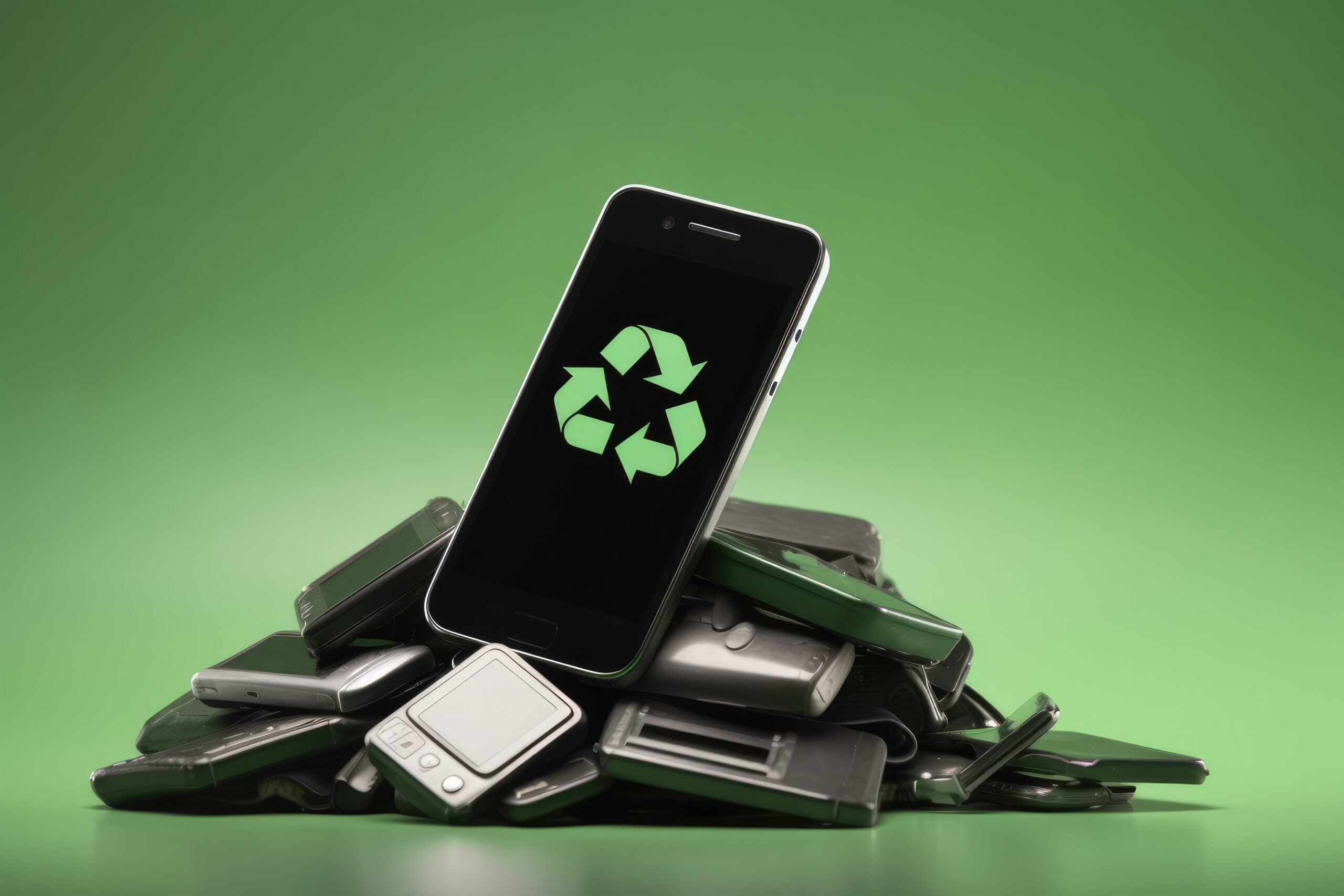Smartphone Recycling and E-Waste: How to Dispose of Your Old Devices Responsibly
As technology rapidly advances, the turnover rate for electronic devices, particularly smartphones, continues to rise. This phenomenon contributes significantly to the growing issue of electronic waste (e-waste), which poses severe environmental and health risks.
Responsible disposal and recycling of old smartphones are essential steps toward mitigating these impacts.
This article explores the importance of smartphone recycling, the consequences of e-waste, and practical methods for responsibly disposing of old devices.
E-Waste and Its Impact
 E-waste encompasses discarded electronic appliances such as smartphones, computers, and televisions. It is one of the fastest-growing waste streams globally, with profound environmental and health implications.
E-waste encompasses discarded electronic appliances such as smartphones, computers, and televisions. It is one of the fastest-growing waste streams globally, with profound environmental and health implications.
Environmental Consequences
- Toxic Components: Smartphones contain hazardous materials like lead, mercury, and cadmium. When improperly disposed of, these toxins can leach into soil and water, causing severe environmental pollution.
- Resource Depletion: Smartphones are made from valuable resources, including precious metals like gold, silver, and palladium. Improper disposal leads to the loss of these finite materials, exacerbating resource depletion.
Health Risks
- Exposure to Toxins: Informal recycling operations often involve manual dismantling and burning of electronic waste, releasing toxic fumes. Workers in these facilities, often in developing countries, are exposed to harmful substances, leading to serious health issues.
- Contamination: Improper disposal methods can contaminate local water supplies and agricultural soil, posing long-term health risks to nearby communities.
The Importance of Smartphone Recycling

Environmental Benefits
- Reduced Pollution: Proper recycling processes prevent the release of toxic substances into the environment, reducing air, water, and soil pollution.
- Resource Recovery: Recycling enables the extraction and reuse of valuable materials from old devices, conserving natural resources and reducing the need for raw material extraction.
Economic and Social Benefits
- Job Creation: The recycling industry generates employment opportunities in collection, processing, and refurbishing of electronic devices.
- Cost Savings: Reusing materials from recycled smartphones reduces the manufacturing costs of new devices, leading to economic savings for companies and consumers.
How to Dispose of Your Old Smartphones Responsibly
 Disposing of old smartphones responsibly involves several steps, from data protection to choosing the right recycling method. Here’s how to ensure your devices are disposed of safely and sustainably.
Disposing of old smartphones responsibly involves several steps, from data protection to choosing the right recycling method. Here’s how to ensure your devices are disposed of safely and sustainably.
Data Protection
- Backup Data: Before disposing of your smartphone, back up all important data, including contacts, photos, and documents, to an external storage device or cloud service.
- Factory Reset: Perform a factory reset to erase all personal data from the device. This ensures that your information is not accessible to others after the device leaves your possession.
Exploring Disposal Options
- Manufacturer and Retailer Programs: Many manufacturers and retailers offer take-back programs and trade-in services. These programs ensure that your old devices are recycled responsibly.
- Certified E-Waste Recyclers: Look for certified e-waste recyclers who adhere to strict environmental and safety standards. Organizations like e-Stewards and R2 Certification provide directories of certified recyclers.
Donation and Reuse
- Donate to Charities: If your old smartphone is still functional, consider donating it to charities or non-profit organizations. Many groups refurbish old devices and provide them to individuals in need.
- Resell or Give Away: Platforms like eBay, Craigslist, or community groups can be used to sell or give away old smartphones. Extending the device's life through reuse is a sustainable option.
Best Practices for Smartphone Recycling
Adopting best practices for smartphone recycling can amplify the positive impact on the environment and society. Here are some strategies to enhance the recycling process:
Educate Yourself and Others
- Awareness Campaigns: Participate in or initiate awareness campaigns about the importance of e-waste recycling. Educating your community can lead to higher recycling rates and better environmental outcomes.
- Stay Informed: Keep up-to-date with the latest recycling programs, regulations, and technologies. Staying informed helps you make better choices regarding the disposal of electronic waste.
Support Sustainable Practices
- Choose Eco-Friendly Products: When purchasing new electronics, opt for products made from recycled materials or those with eco-friendly certifications. Supporting companies with sustainable practices encourages more businesses to adopt similar standards.
- Advocate for Change: Support policies and initiatives that promote responsible e-waste management and recycling. Advocacy can drive legislative changes that improve e-waste handling and recycling infrastructure.
Minimize E-Waste Generation
- Extend Device Lifespan: Take care of your devices to extend their lifespan. Use protective cases, avoid overcharging, and perform regular maintenance to keep them in good condition.
- Upgrade Responsibly: Avoid the urge to frequently upgrade to the latest model. Only replace your smartphone when necessary, and choose high-quality devices that are built to last.
Conclusion
Smartphone recycling and responsible e-waste disposal are crucial for protecting the environment, conserving resources, and safeguarding public health. By understanding the impact of e-waste, embracing recycling practices, and adopting sustainable habits, individuals and organizations can contribute significantly to reducing the adverse effects of electronic waste. Implementing these strategies not only ensures that valuable materials are recovered but also promotes a healthier planet for future generations.
Sources
- Environmental Protection Agency (EPA): E-Waste Recycling
- Greenpeace: The Global Impact of E-Waste
- The World Health Organization (WHO): Health Impacts of E-Waste
- United Nations University: E-Waste Monitor
- e-Stewards: Certified E-Waste Recyclers
- R2 Certification: Responsible Recycling
- Apple: Trade In and Recycling Program











![[LIVE] Engage2Earn: GoFundMeme comments](https://cdn.bulbapp.io/frontend/images/1ed886b0-9b45-4102-a95e-97d412093f08/1)
































































